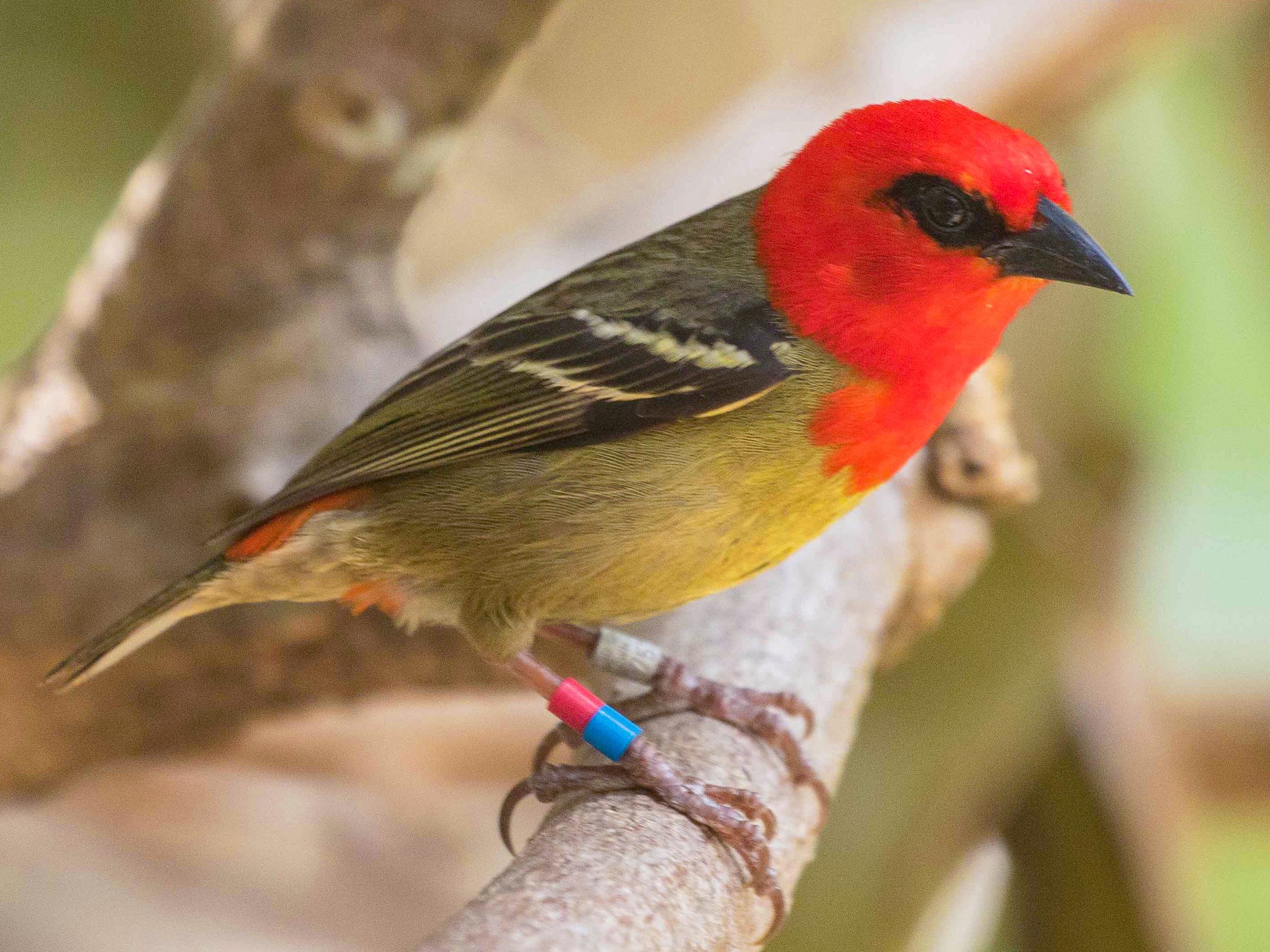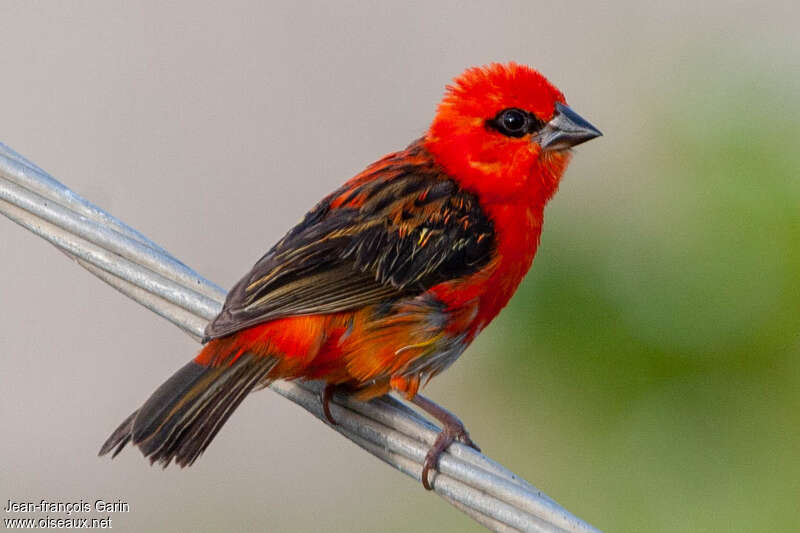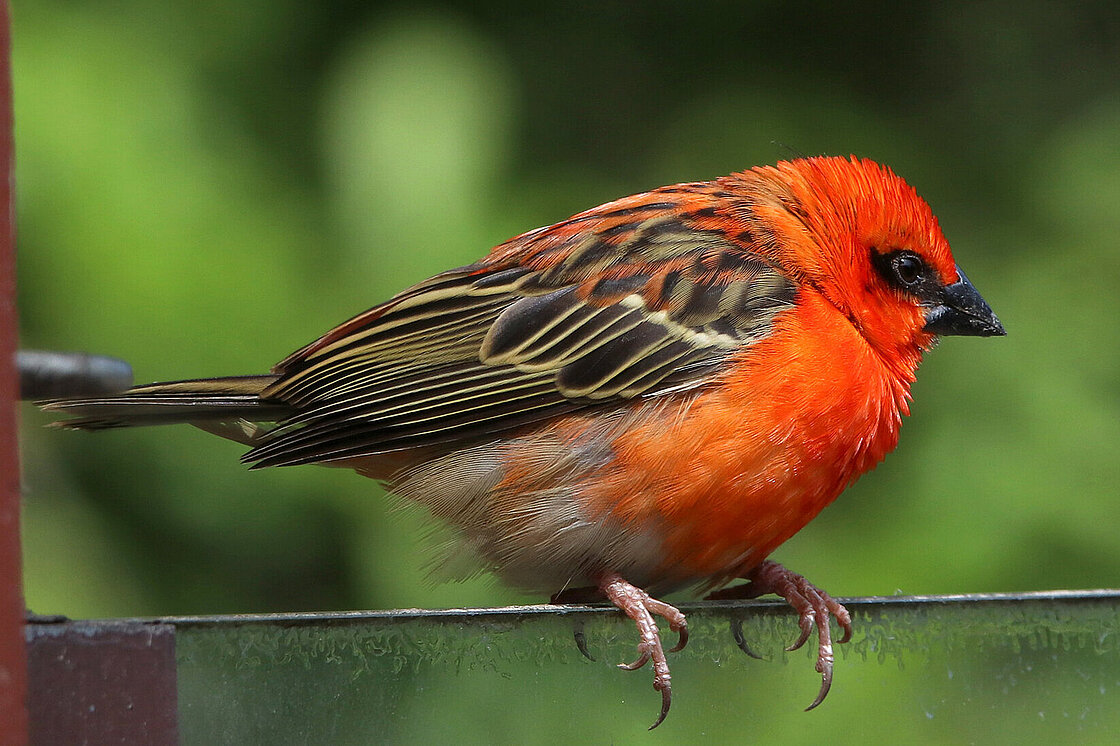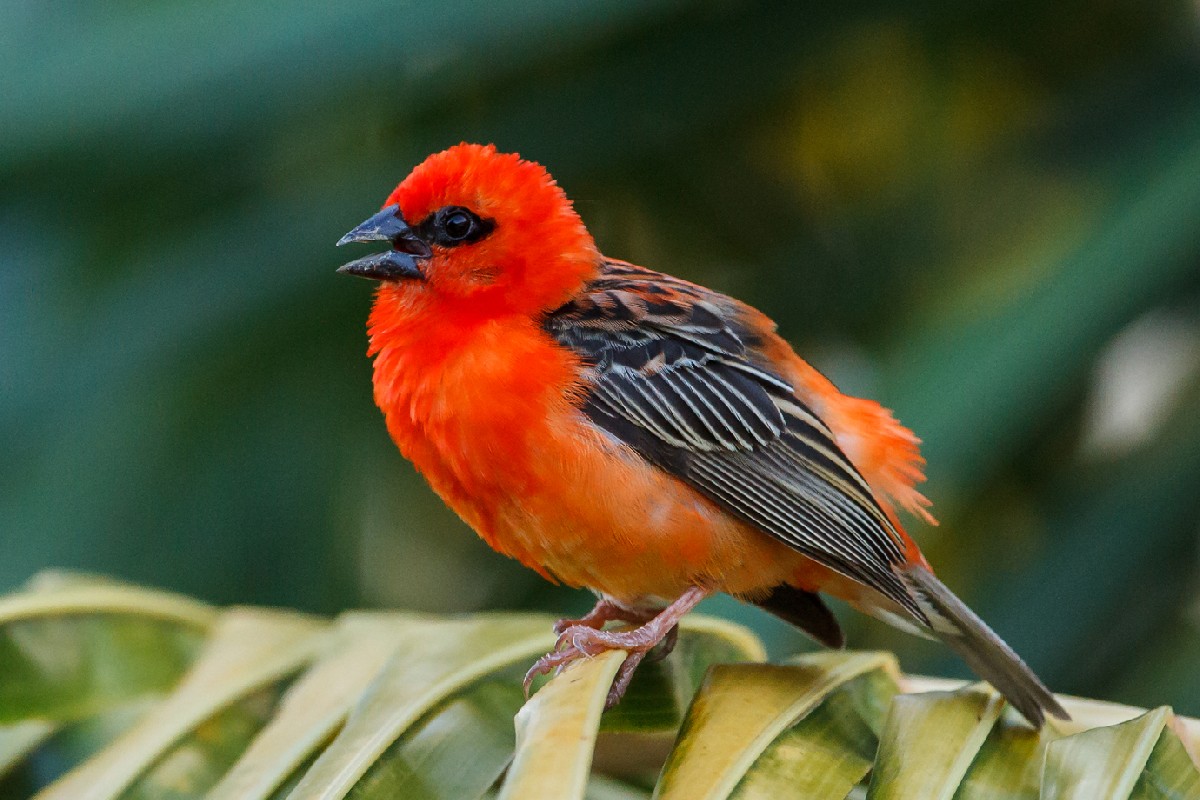The population of the Mauritius Fody suffered a rapid decline in the 1970s due to nest predation and habitat loss.
Conservationists believe that between 1975 and 1993 the foudia ruba suffered a loss of 55 percent both in terms of population size and area of occupancy.
In 1994 its status on the IUCN Red List was categorised as Critically Endangered.

Now due to massive conservation efforts its population is stable and its status downlisted to Endangered.
The endemic Fody bears a close resemblance to the exotic Madagascar Fody which is very common in Mauritius.. The male Madagascar Fody, however, has completely bright red plumage during breeding season.

Photo Courtesy: Rhonda Racine
Common name:
English: Mauritius Fody
French: Cardinal de Maurice, Foudi de l’Ile Maurice
Mauritian Creole: Kardinal, Colin, zozo banane
Species name author:
Johaan Friedrich Gmelin, a German naturalist (1789)
Taxonomy:
Order: Passeriformes
Family: Ploceidae (weaver)
Current IUCN Red List category:
Endangered (EN)
International Union for the Conservation of Nature – Endangered

Description:
Male: brown with a red plumage from head and breast with black loreal area
Female: a uniform olive-brown with darker wings
Size – about 14 cm
Average mass – 18 g

Population:
Size – around 400 birds
Trend – stable
Distribution size (breeding/resident): 12 sq km
Habitat:

Medium forest dependency
Restricted to a small range within the upland tropical forest of Black River Gorges
Diet:
Nectar, fruits and insects
Threats:

Nest predation by introduced mammals, notably the Crab-eating macaque and black rats
Birds like the Indian Mynah have also been observed predating nests
Habitat degradation and loss caused by the clearance of upland forest, particularly for plantations in the 1970s
Conservation:

Predator control
Rehabilitate plots of native vegetation
A captive-rearing programme is implemented by the Mauritian Wildlife Foundation, the Gerald Durrell Endemic Wildlife Sanctuary and the National Parks and Conservation Service.